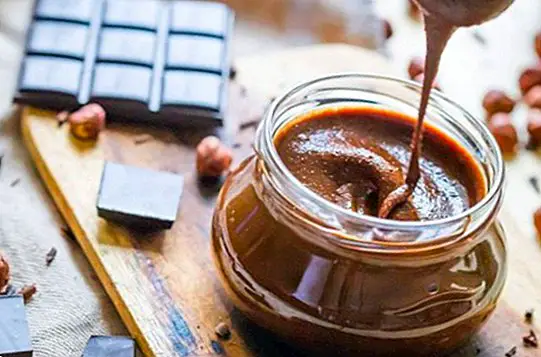Why it is not good to add salt to meals and how to reduce it
Did you know that every day we tend to consume more Salt of which we should really? Many studies estimate that each day we take around 10 grams of salt per day, when in fact it is theoretically recommended not to exceed 4 or 5 grams per day. The conclusion is more than obvious: we eat more salt than we should, and in part the "fault" is not ours, since many of the industrial products that we eat daily already have an excessive salt content in their composition.
That is, not so much is the salt shaker's fault that we put on the table at the time of eating or of the salt that we add in the food when we are preparing it in the kitchen, and yes of many of the products that we eat or drink already made. Moreover, it is estimated that three quarters of the sodium chloride we eat each day comes originally from the preparation of the products we consume.

And, among these products, we find foods as diverse as bread and pastries, sandwiches, cookies, soups, pizzas, cheeses ... and even fruit juices or juices. Because, indeed, believe it or not, an apparently sweet sweetened drink also contains a very high amount of sodium ... even if we do not realize it.
But let's go a little further and analyze some of the most daily consumed products in terms of their salt content. Apparently "normal" products that actually add a lot of sodium chloride:
- 100 gr. of ketchup sauce: 4 grams.
- 1 bowl of packaged soup: 2.5 grams.
- 1 serving of pizza (200 grams): 2.6 grams.
- Half baguette: 1,70 grams.
- 50 gr. of cereals: 1.2 grams.
- 1 serving of chocolate: 0.5 grams.
- 5 cookies (Maria type): 0.4 grams.
As we see, if for example we choose to dine a bowl or bowl of soup packaged thinking that it is a healthy option for being apparently low in fat and calories, the truth is that we would be contributing to our body half the salt that we should have consumed throughout the day. And if we add to that the very probable situation that, for example, at midmorning we have eaten a piece of bread or for breakfast a bowl of cereals ... we will have already exceeded that amount.
The solution? Do not add more salt to the meals that we consume daily, and try above all to substitute salt for other healthier and more natural options such as spices and herbs, which can also provide flavor to the food without increasing its salt content. But how to get it ?.
What makes excess salt to our body?
Although sodium chloride is essential for the functioning of our body, an excess of salt is always counterproductive, and may even be very dangerous to our health. Therefore, when we exceed the daily consumption of salt becomes a harmful element to health, with the following effects:
- Increases the risk of blood pressure, being more likely to suffer high blood pressure over time.
- Increases the loss of calcium in the kidneys.
- It damages the digestive system.
- Increase appetite and therefore we tend to eat more, in turn increasing our weight.
- It is a risk for heart disease.
- It can be the origin of heart and brain diseases.

Useful tips for not adding more salt to meals
If you have a habit of adding salt to most of the foods you eat (especially at lunch and dinner) it is possible that at first it will be hard to get rid of it, being quite likely that everything you eat seems bland. It's normal, since your taste buds are "used" to the salty taste of food. But little by little you can change this habit. How? Take note:
- Replace the salt with other, healthier options: a good option is to opt for herbs and spices that, in addition to flavor, provide better aromas to the dishes, and even help to intensify the flavor of some foods. For example, dill is ideal for salmon and the sweet sauces that accompany it, while oregano is very interesting when added over slices of fresh tomatoes. For broths and soups a useful option is parsley or black pepper.
- Remove the salt shaker from the table: It is possible that in your house you still have the habit of having the salt shaker on the table. It is best to always try to remove it from the table, banishing it completely.
- Kitchen with less salt: It is evident that many of the recipes we make every day, especially if you are used to cooking at home, need a few teaspoons of salt to add flavor. You can either replace it with spices or herbs or season it directly in the kitchen with only the recommended amount.
... But let's not see salt with bad eyes
Salt, or almost better said sodium chloride, is fundamental and necessary for the proper functioning of our body. For example, thanks to its relationship with potassium in our body an adequate water balance takes place.
On the other hand, we can not forget its organoleptic qualities, which means that it helps us to intensify the flavor of the food we eat, so that without it, everything would taste bland.
So, salt yes but in its just measure. And as we see, Most of the food we eat every day already contains enough of our body needs sodium chloride. Therefore, it is best not to add more salt to the foods that they already contain. This article is published for informational purposes only. You can not and should not replace the consultation with a Nutritionist. We advise you to consult your trusted Nutritionist. ThemesHypertension



